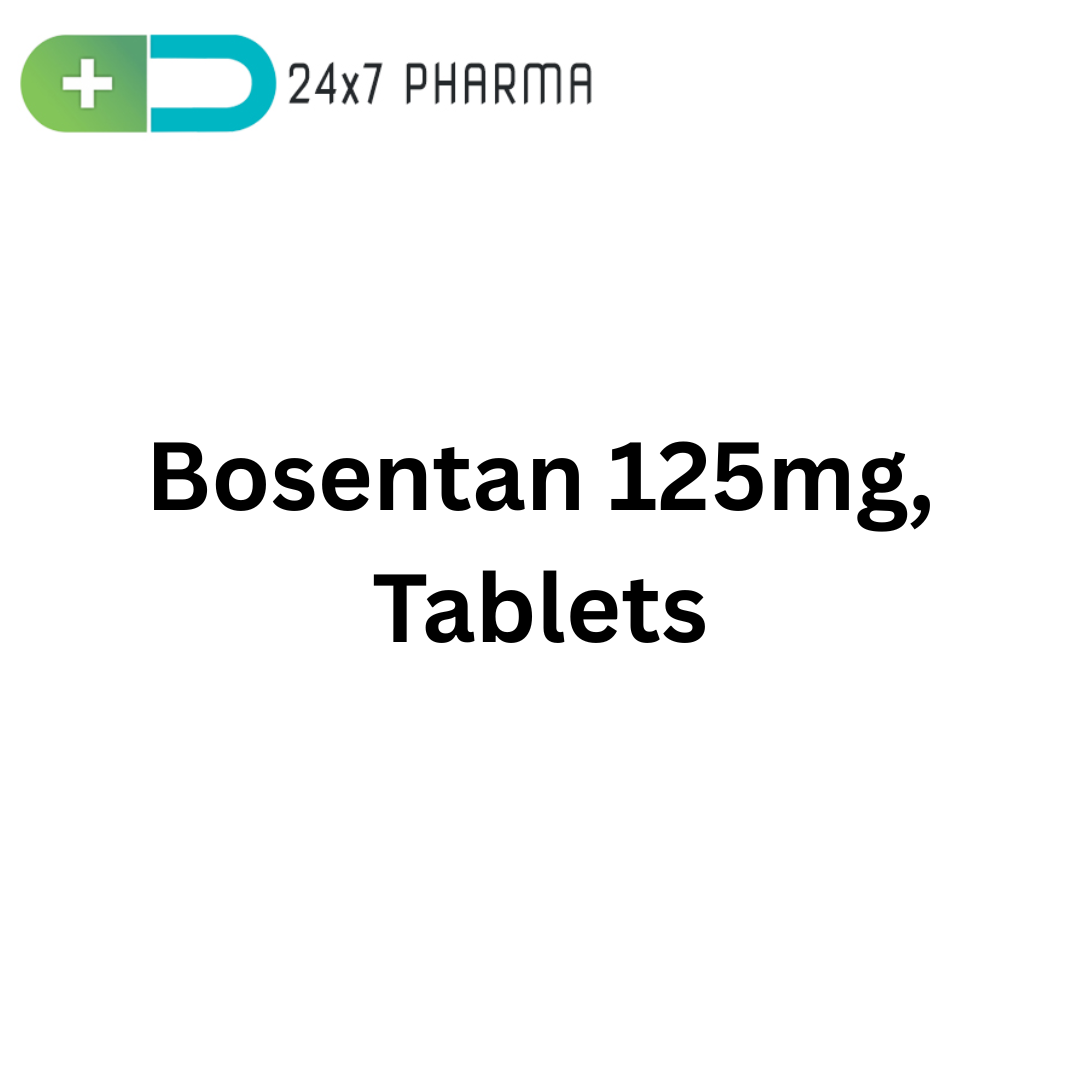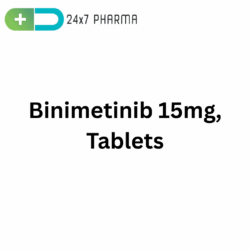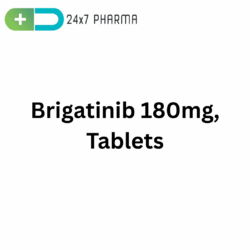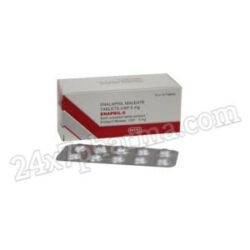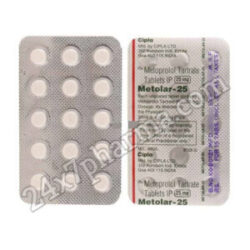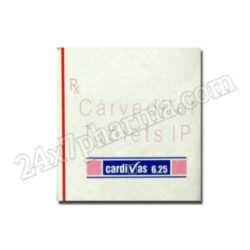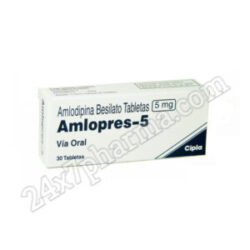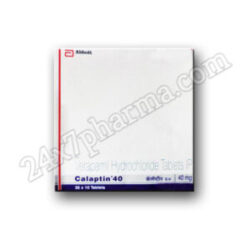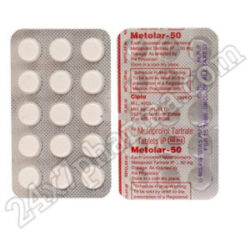LuciBose 125mg, Bosentan Tablets
Bosentan is an endothelin receptor antagonist that is present in the pharmaceutical product LuciBose 125mg. It is primarily used in the management of pulmonary arterial hypertension (PAH), a condition characterized by elevated blood pressure in the pulmonary arteries, leading to increased workload on the heart. By targeting endothelin receptors, LuciBose helps in reducing pulmonary vascular resistance, thereby improving exercise capacity and slowing disease progression.
What is LuciBose 125mg (Bosentan)?
LuciBose 125mg is a brand-name formulation of the drug Bosentan, which belongs to a class of medications known as endothelin receptor antagonists. It is mostly recommended to treat pulmonary arterial hypertension (PAH), a form of excessive blood pressure that damages the heart’s right side and lungs’ arteries.
Mechanism of Action
What is Endothelin-1 (ET-1)?
Endothelin-1 is a powerful vasoconstrictor—a substance that narrows blood vessels and increases blood pressure. In patients with Pulmonary Arterial Hypertension (PAH), levels of endothelin-1 are abnormally high, especially in the lungs. This contributes to:
- Narrowing of pulmonary blood vessels
- Increased pulmonary vascular resistance
- Elevated blood pressure in the lungs
- Strain on the right side of the heart
How Bosentan Works
Bosentan works by competitively binding to ETA and ETB receptors, preventing endothelin-1 from attaching to them. Here’s what that accomplishes:
ETA receptor blockade:
- Prevents vasoconstriction (narrowing of blood vessels)
- Reduces blood pressure in the pulmonary arteries
ETB receptor blockade:
- Limits the clearance of endothelin-1 (though ETB also has some vasodilatory and clearance functions—this is a trade-off)
- Bosentan functions as a dual endothelin receptor antagonist, blocking both endothelin-A (ET-A) and endothelin-B (ET-B) receptors.
Indications
LuciBose 125mg is indicated for:
To enhance exercise capacity and reduce clinical deterioration in patients with WHO Group 1 pulmonary arterial hypertension (PAH).
Off-label Uses: Bosentan has been studied for the prevention of digital ulcers in systemic sclerosis and the management of Raynaud’s phenomenon associated with systemic sclerosis .
Dosage and Administration
Adults:
- Initial Dose: 62.5 mg orally twice daily for 4 weeks.
- Maintenance Dose: Increase to 125 mg orally twice daily after 4 weeks, based on tolerability .
Pediatric Patients (3 to 12 years):
Weight-based Dosing: Doses range from 16 mg to 64 mg orally twice daily, depending on body weight .
Other Dosage Forms
Bosentan is also available in other strengths and formulations, including 62.5 mg and 250 mg tablets, and oral suspensions, to accommodate varying patient needs and ensure appropriate dosing
Side Effects
Common adverse effects associated with LuciBose include:
- One of the most commonly reported adverse effects is a headache.
- Flushing: Redness or warmth in the face, neck, or chest.
- Nasal congestion : Blocked or runny nose.
- Respiratory tract infections : Including cold-like symptoms.
- Fatigue : Tiredness or weakness.
- Palpitations : Feeling of rapid or irregular heartbeat.
- Edema (fluid retention) : Swelling, especially in the ankles, legs, or hands.
- Lightheadedness: Particularly when standing up fast (may be caused by low blood pressure).
- Cough : A dry, persistent cough.
Serious Side Effects
- Liver Toxicity : Elevated liver enzymes can occur. Routine liver function tests are essential.
- Anemia : A reduction in red blood cell count.Symptoms include exhaustion, pale complexion, and dyspnea.
- Hypotension: An abnormally low blood pressure level that causes lightheadedness or fainting.
- Worsening of PAH : In rare cases, symptoms may worsen before improving.
- Testicular atrophy or infertility (rare) : Bosentan may reduce sperm counts in men.
- Menstrual irregularities : Changes in menstrual cycle have been reported.
Monitoring Required
serious effects, the following monitoring is recommended:
- Liver function tests (LFTs): Monthly
- Hemoglobin levels: Periodically
- Pregnancy tests: Monthly for women of reproductive age
Storage
Store LuciBose at room temperature, away from heat sources and moisture. Keep children away from it, and properly dispose of any unused medication.
Benefits
Benefits LuciBose’s main advantages in treating PAH are as follows:
- Improved exercise capacity
- Decreased clinical worsening
- Reduction in pulmonary vascular resistance
- Better quality of life for PAH patients
Prescription
LuciBose 125mg is a prescription medication and should be used under the supervision of a healthcare provider. Regular monitoring of liver function is essential during treatment due to the risk of hepatotoxicity .
Drug Interactions
-
Bosentan may interact with various medications, including:
- Cyclosporine A: Increased bosentan levels and hepatotoxicity risk.
- Glibenclamide: Decreased glibenclamide effectiveness.
- Hormonal contraceptives: Reduced effectiveness; alternative contraception methods should be considered.
- Other CYP2C9 and CYP3A4 substrates: Potential changes in drug levels .
FAQs
Can LuciBose be take with food?
Yes, LuciBose can be take with or without food.
Can LuciBose be use in children?
Yes, but dosing must be adjusted based on body weight, and treatment should be under pediatric supervision.
Are there any dietary restrictions?
Avoid grapefruit juice, as it may interact with Bosentan.
Conclusion
LuciBose 125mg (Bosentan) plays a crucial role in the management of pulmonary arterial hypertension by targeting endothelin receptors to reduce pulmonary vascular resistance. While it offers significant benefits in improving exercise capacity and quality of life, careful monitoring for potential side effects, particularly liver function, is essential. Patients should adhere to prescribed dosages and consult healthcare providers regularly to ensure optimal therapeutic outcomes.

